PC
PS4
PS5
Switch
Xbox One
Xbox Series
We need more games about cats. Aside from the excellent Stray, there is a dearth of feline protagonists — I’m ignoring everything to do with Bubsy here — which is a damn shame. Full disclosure: I own two cats. One of them is twelve, the other five, and if anything happens to them (which it will) I am going to be distraught. I’ve only ever lost one cat I’ve owned and it was devastating. Dog owners will also understand the deep connection you have with your furry companions, but ”keeping” a cat is a bit of a misnomer. They choose to be around you, at least initially, but there’s always a chance they decide to bugger off elsewhere, preferably with tastier food, comfier surfaces, or more pleasing feng shui.
But what if they do leave? In the case of Copycat, the solution is simple. Get a replacement from the cat shelter that looks identical to the one which scarpered. Such is the case of Olive, an elderly lady with emphysema who lives alone in an Australian suburb. After picking you out from a possible six cats and naming you Dawn (perhaps you are the reincarnation of a dinner lady?), Olive brings you home to acclimatise.
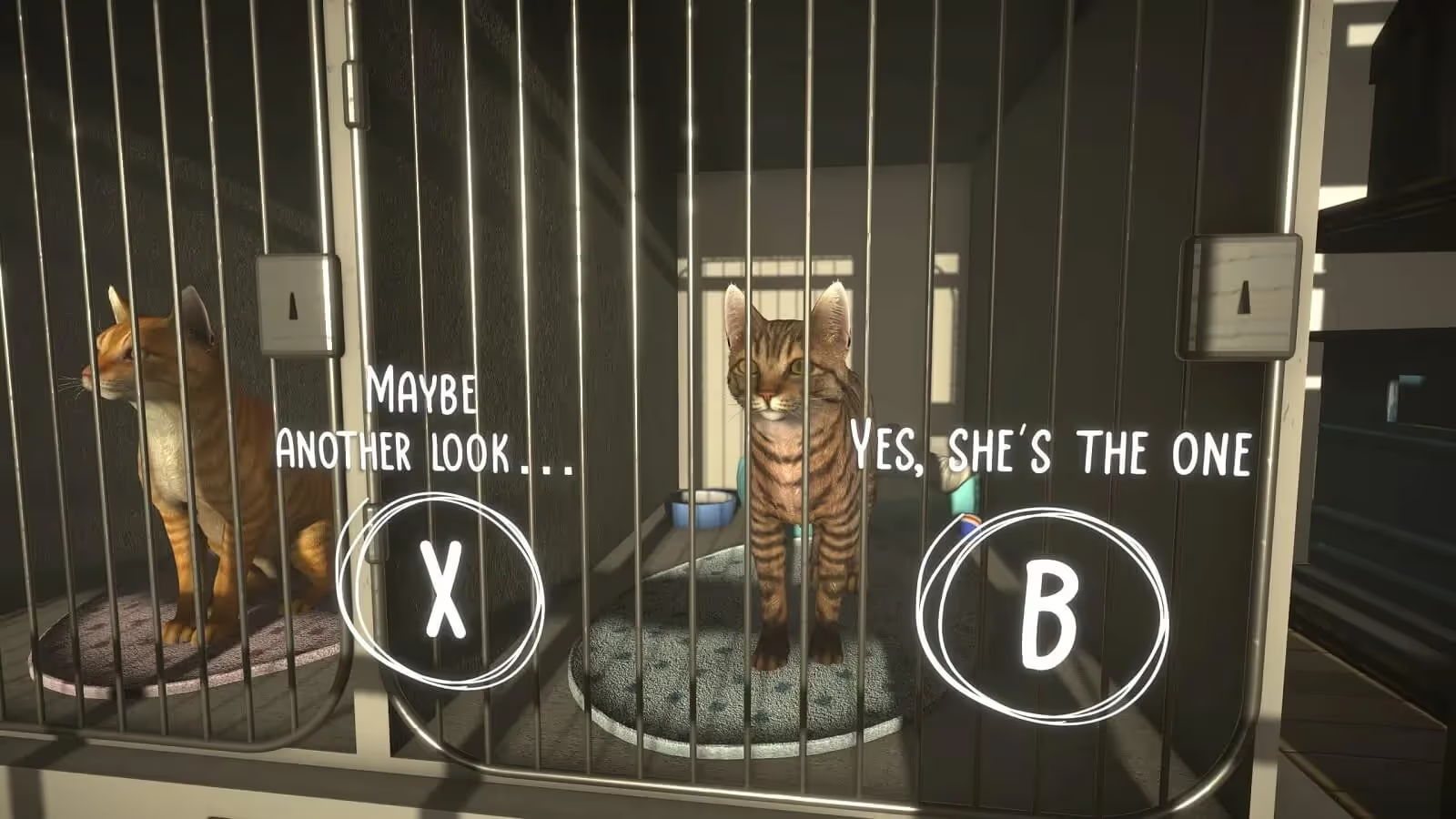
What follows are typical cat activities around the house: running, leaping, knocking things over, and scavenging food. Dawn is animated reasonably well on the ground and it’s clear that indie studio Spoonful of Wonder clearly has experience with cats. There’s some fun to be had from mini activities such as shredding toilet paper or knocking plates of food onto the floor. However, jumping feels too floaty and there’s no weight to your attempts to climb onto furniture, which means the gameplay lacks the polish of BlueTwelve Studio’s Stray.
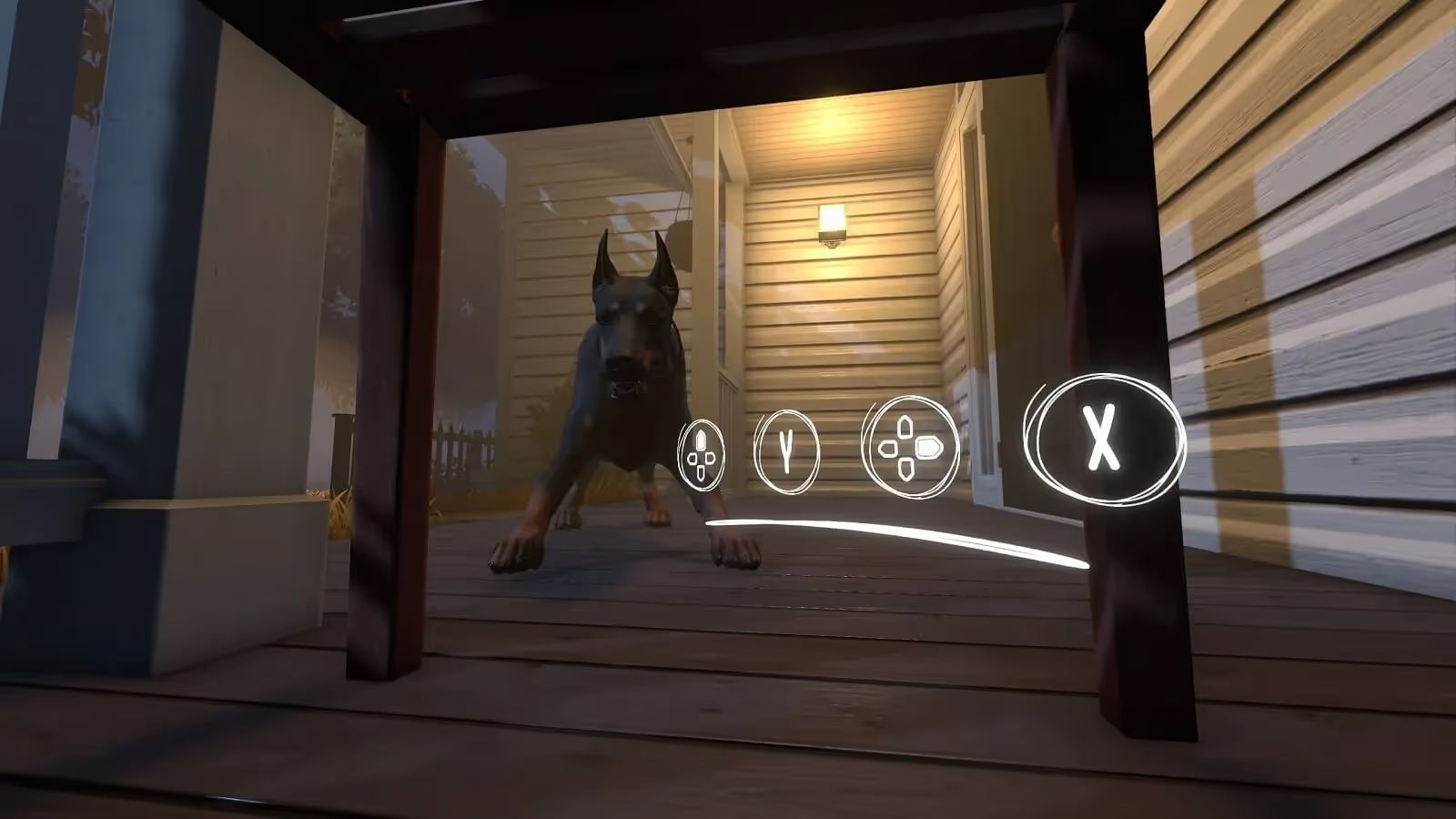
Setting the clunkiness aside, Copycat is a story of belonging and it starts off well. Olive puts up with your sassiness in a way that only elderly ladies can, while you’re told from the outset that you’re a replacement for the original Dawn who fled when an ambulance arrived some weeks earlier. So when that same cat reappears to take your place after Olive suffers another medical issue a few days later, you’re booted out. The game then follows your journey to try and reclaim your spot and understand why this happened. After all, you’ve bonded with Olive over the space of a week, and there’s absolutely no way that she wouldn’t be able to tell the difference between you. Even the most identical-looking cats have something about them that makes them unique, right?
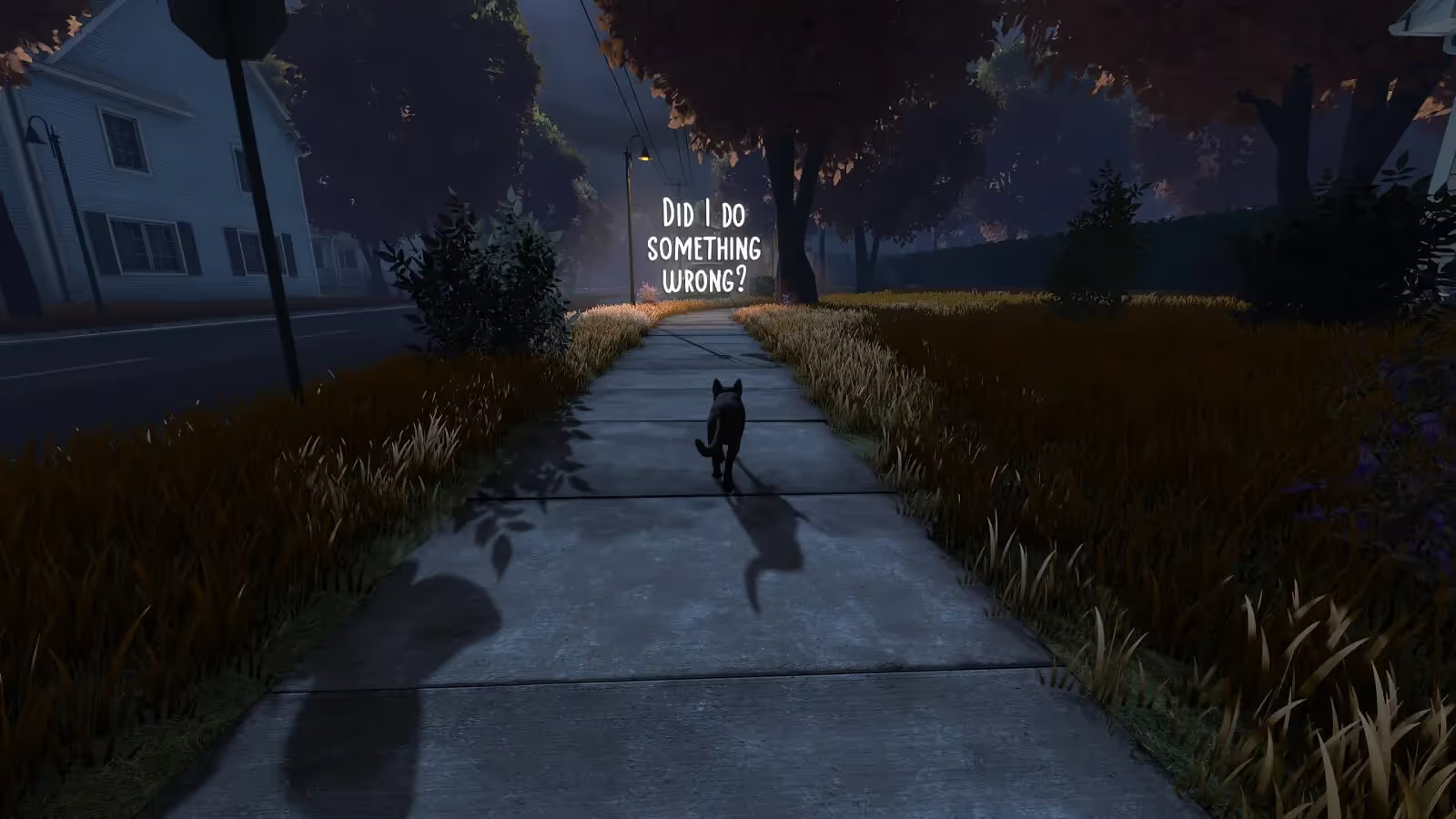
Despite the game’s emotional aspirations, I struggled with several story elements that pulled me out of the drama. Firstly, the awkward juxtaposition of Dawn learning to be a wildcat, clumsily narrated by a “wildlife expert,” is jarring. At times the narrator relays your circumstances; at others, he talks to you directly to advise on what to do next. This inconsistency undermines some poignant scenes. The gameplay also suffers from this as Dawn imagines herself as a big cat hunting in the plains, a concept revisited multiple times throughout the game. This premise doesn’t gel well and feels like it was added purely for graphical variation.
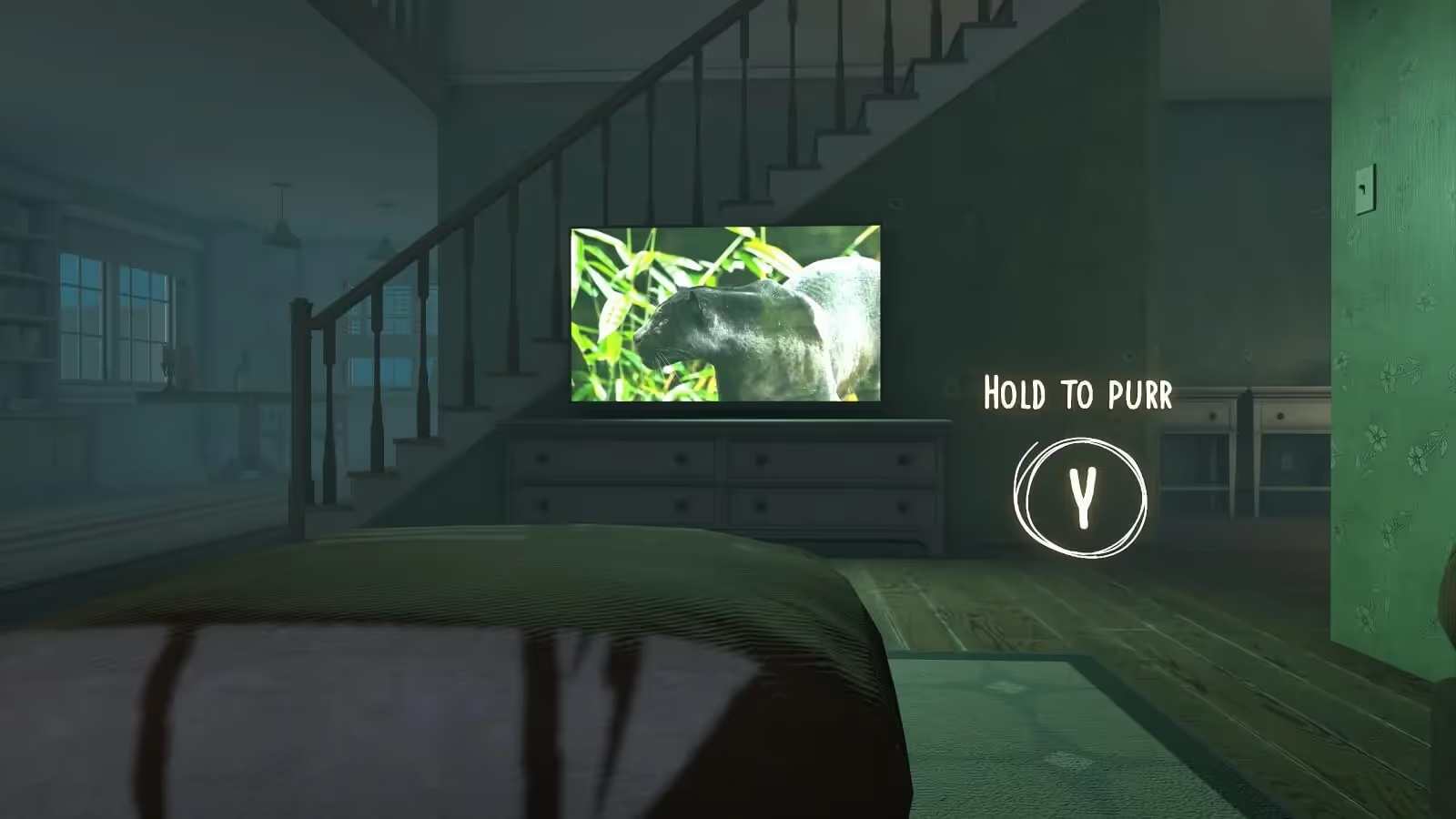
Secondly, Olive’s daughter Mae makes an appearance after the first hour as a pantomime villain. Her hatred of cats is unexplained — perhaps jealousy? — and things take a dark turn with her character that feels out of place in the narrative. Finally, at the end of the second hour, Olive makes a heartbreaking decision. This moment reduced me to tears, not because it made sense, but because it didn’t. It felt like an implausible plot device meant to elicit a reaction, akin to the final emotional manipulations seen in many Pixar films. I was upset and angry, but not for the reasons the developer likely intended.
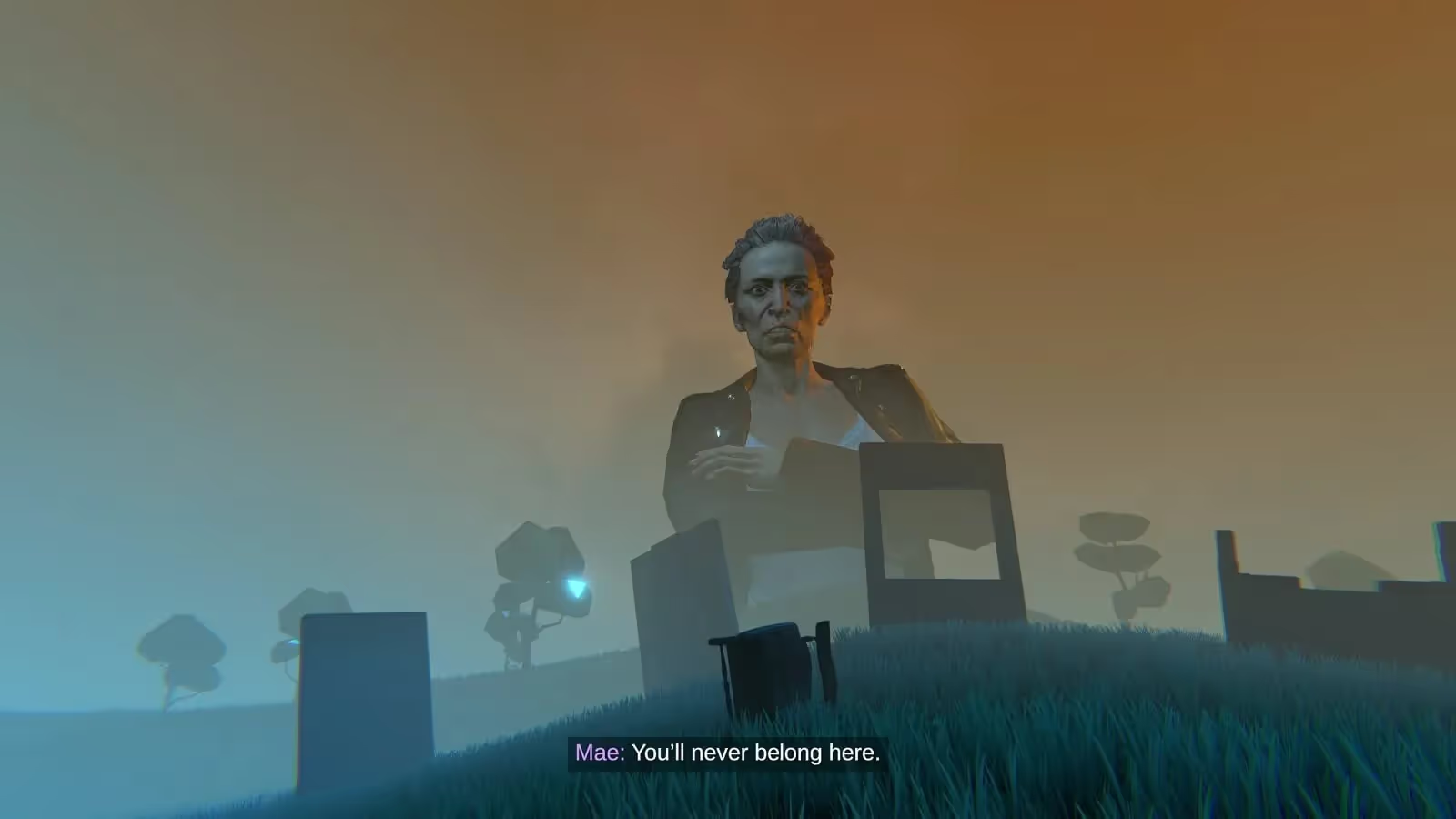
Nevertheless, I can’t fault Copycat for its attempt to tell an emotionally powerful story, even if it misses some beats. Yes, it’s essentially a walking simulator with a mix of reaction mini-games, endless runner segments, and quick-time events. Sure, you might spend time wandering around similar-looking houses with minimal interaction. And strewth, the ending could be seen as a bit of a cop-out. But it is beautifully directed throughout, and Daniel Bunting’s piano-heavy score strikes the right balance between danger and minor key melodrama. Dawn is thankfully not voiced, but her thoughts appear on screen in the style of many indie games — Edith Finch springs to mind the most — and they offer gentle insight into her confusion (and oddly, a comment on how taxpayers’ money is being used in parks, something I’m sure is at the forefront of every cat’s mind).
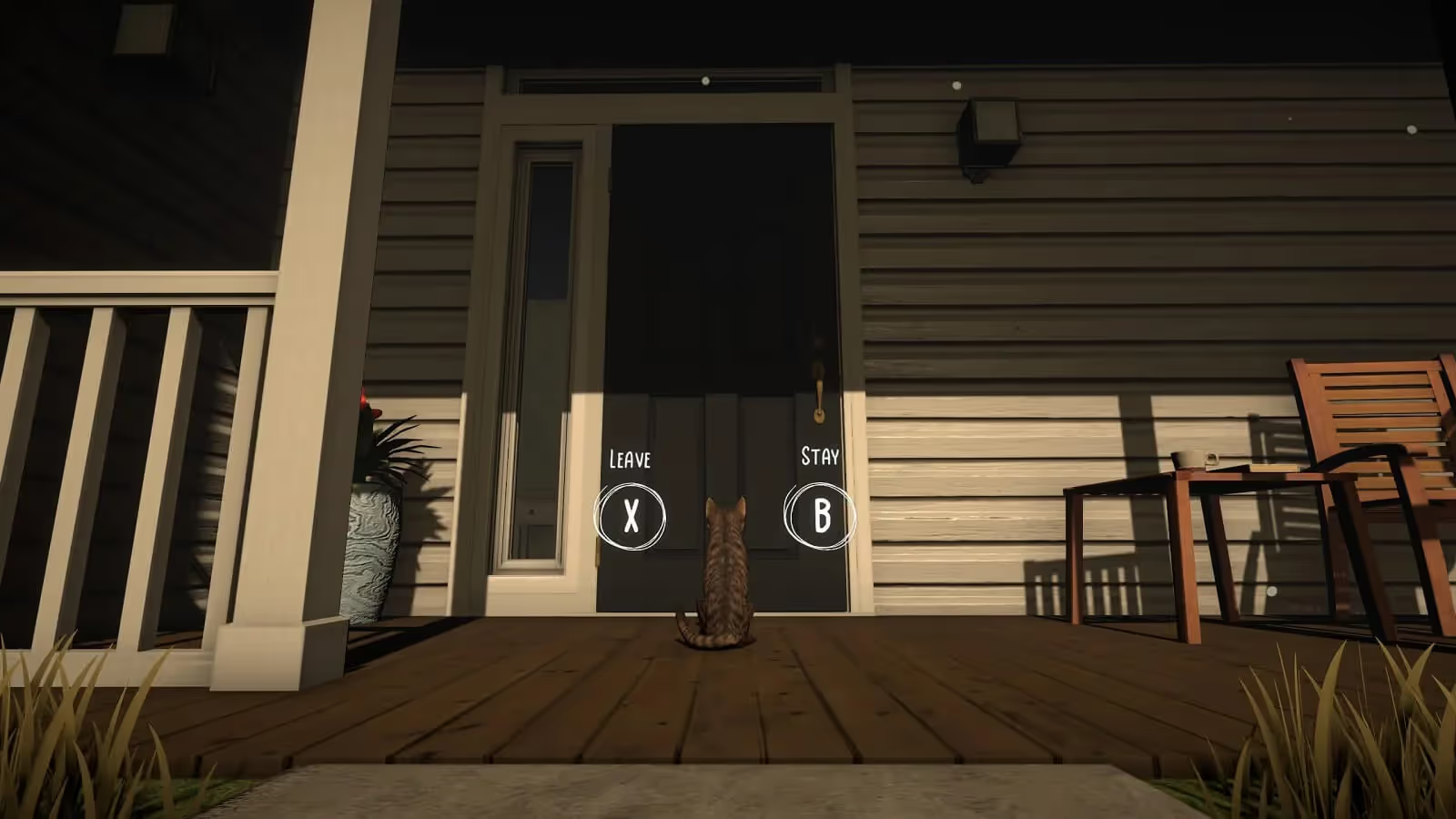
So, while Copycat might not be the cat’s whiskers, it’s still a reflective game about loneliness and belonging that will keep you absorbed, fleas and all, for its three-hour length.
You can subscribe to Jump Chat Roll on your favourite podcast players including:
Let us know in the comments if you enjoyed this podcast, and if there are any topics you'd like to hear us tackle in future episodes!



